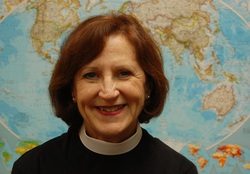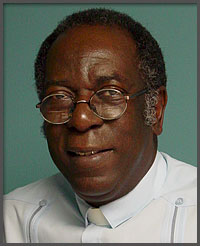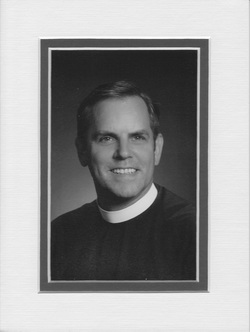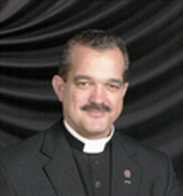 Tuesday, April 30, 2013 Day 114 – II Samuel 13-15, Psalm 94, Acts 9 Kathleen Gannon
II Samuel, Chapter 13 is one of the most difficult chapters in the scripture, I think. Tamar, tricked, raped, abandoned. Add incest and revenge, and you have a clearly callous viewpoint on this story. No outrage, no justice. In the footnotes of The New Oxford Annotated Bible (4th edition) the commentators call this “…a measure for measure punishment of David. He appropriated Bathsheba and arranged for Uriah’s death, so rape and death are unleashed against his house.” And the comments go on to say that it may not have been quite that, but rather “…this story may have been unconnected to the Bathsheba event and served to introduce Absalom’s revolt.”
The narration in II Samuel 13 is all about the men and the politics. Even the words in the footnotes, I find offensive. ‘appropriated Bathsheba’? …the ‘Bathsheba event’?
What is wrong with this picture?
In The Cry of Tamar: Violence Against Women and the Church's Response, Episcopal priest, The Rev. Dr. Pamela Cooper-White says, "Even the poignancy of Tamar's humiliation is drawn out for the primary purpose of justifying Absalom's later murder of Amnon, and not for its own sake" (p. 29 in the 2012 Second Edition).
The story of Tamar needs to be heard for its own sake. That this story is included in our scripture reminds us that women were indeed chattel and in many parts of the world are still treated as possessions and not people, even today.
In the nearly two decades between the publishing of Cooper-White’s first edition in 1995 and the second edition in 2012, much progress has been made in the area of women’s rights and protection in cases of all kinds of violence, including domestic violence. But as the church, we must still be aware that sexual violence against women is a real and present danger. In addition, the trafficking of young girls and women is the second largest organized crime behind drug trafficking.
At St. Paul’s in Delray we have three events planned to raise awareness of the issues of human trafficking… May 11th our Brotherhood of Saint Andrew will offer the documentary Sex + Money, to engage the men of our church in the dialogue of awareness and prevention. On June 9th and 10th Becca Stevens from Thistle Farms will be with us for a series of events. In June we will offer a training by Shared Hope International… stay tuned to our web site for details. www.StPaulsDelray.org.
In counterpoint to the II Samuel chapters we also read Acts 9 today. The story of ‘Saul to Paul’ is one we hear annually at St. Paul’s on the occasion of our patronal celebrations which includes our Annual Meeting and Festive Meal in January. Saul has persecuted the followers of The Way, yet God found a way to redeem Paul with a bold of lightning and a healing from blindness. I have read nothing about S/Paul being involved in rape or incest. Can God’s forgiveness really extend that far? The immensity of God’s ability to forgive is clear. And, our ability to forgive is surely a gift from God.
 Day 113 Reflection
April 29, 2013
2 Samuel 10-12, Psalm 93, Acts 8
The Rev. Mark Andrew Jones, BSG
David is now king. He is sufficiently secure that he lets others do his
fighting for him. Meanwhile, David discovers that other conquests lay
before him; so he takes another man’s wife. Perhaps most remarkable in the
story is the prophet Nathan, who has the moral courage to speak truth to
power. In doing so, Nathan does not harshly denounce as later prophets do
(e.g., Elijah or Amos). No, instead Nathan tells the king a parable, and
lets the king convict himself.
Nathan’s approach presupposes some common sense of justice, and that the king
ultimately is a person of good will with the decency to deplore injustice.
This approach touches on a contemporary debate. It has been argued that
the non-violent protests of Gandhi prevailed over the British and led to India’s
independence, because the British were fundamentally people of good will who
deplore injustice. It’s been argued that the same cannot be said of Hitler
and the Nazis or of any other brutal totalitarian regime that values the State,
the Party or the Leader over that of the individual.
As Saul persecutes the early Church, he appears to meet only passive
resistance. In time, Christian ethics will evolve to endorse a “Just War
Theory.” Rather than sanctioning violence per se, it is a means for
limiting violence. The simple fact that war has broken out among sinful
human beings does not then remove all boundaries on the potential use of deadly
force.
In this Age of Terror, we face many threats. I’m not suggesting
Christians must be advocates of passivism; but neither should we endorse
military actions without due deliberation about the moral criteria, such as
articulated in the Just War Theory. Sometimes we still should turn the
other cheek. Finding the line is to be a matter of heart, mind and reason
– not just an emotional reaction.
 The Bible Challenge, Day 111: 2 Samuel 7-9, Psalm 92 and Acts 7
Thank you for taking the time to look back at my reflections on the readings from Saturday. I am limping late once again, this time because of travel to a second funeral in five weeks. Easter Life has graced this fragile time for me.
In these readings I am struck by the human need to respond to the grace of God manifest in our lives. David wants to honor God by building the Lord a magnificent palace, since palaces are the proper homes for kings. God’s response is, “No, thank you.” God prefers a mobile home – a tent that can move around with the people. “I AM where I AM” [one legitimate translation of the Hebrew in Exodus 3] is even God’s identity, and we are glad indeed that God is wherever we are. However, God is flexible, and if a palace for God helps people feel close to the divine Holy One, then David’s heir can build it. God adds one more detail to the message for David: “Your dynasty will
endure forever.” Christians recognize the line of David’s kingship to last forever in Jesus. But for David the words were a precious gift, sign of God’s approval of him and love for him. David praises God for this gift and proceeds to take action in response to the grace. As leader of God’s people, David expands Israel’s homeland and its security. On a personal level, David extends kindness to the heir of Saul because of David’s precious friendship with Saul’s son Jonathan. David gives Saul’s property to Saul’s crippled grandson Mephibosheth and his family and welcomes Mephibosheth as a guest at his own dinner table for the rest of the younger man’s life. God’s generosity inspires David’s generosity.
Psalm 92 exudes joyful energy. The psalmist praises God with words and
music. God’s loyal love in action draws us into God’s presence, where we
are revived. God is our strength. Praise overflows from our hearts.
Stephen the Deacon shares the passion for God of his spiritual forebears
David and the author of Psalm 92. But Stephen’s passion erupts in rebuke,
as he desperately attempts to wake up his hostile audience to their many
missteps in their walk with God. Stephen recounts God’s love in action for
Abraham and his descendants to the time of Solomon. He berates the mob for
their deaf ears in response to God’s challenging messages, relayed by prophets
and the Holy Spirit. His audience, too, has a passion for God and for
God’s integrity. Stephen’s new Word from God is so non-traditional that it
sounds unfaithful. They stone Stephen in order to silence what they
believe is blasphemy. But even here we encounter a glimpse of God’s
grace. Stephen dies in the fashion of Jesus, with forgiveness on his
lips. Witnessing Stephen’s faithfulness and courage is Saul, a man whom
God is about to transform into Jesus’ preeminent missionary to the Gentiles.
How have you responded to God’s grace with action?
Dean Jennie Lou Reid
St. Faith's Episcopal Church
Cutler Bay, FL
 2 Samuel Chapters 4 -6/Psalm 91/Acts 6
The passage from 2 Samuel seems to present God as a warrior determined to grant victory to David by all means possible. It is a bloody story that could be in the background of a horror movie. The essence of this passage is yet better expressed in Psalm 91 which says most importantly that he who dwells in the shelter of the most high and lodges under the shadow of the Almighty who says” The Lord is my self-retreat” will indeed by protected by God and used as God’s instrument in God’s plan.
It is not in human terms protection from all harm; no God’s beloved, like Stephen in the Book of Acts will be victims of jealousy, misunderstanding and yet at the end gain victory in this world or the next.
As we continue in our reading of the Book of Acts, we will see now the early Christians had to walk in the path of our Lord, mainly the way of the cross. Many were martyrs, yet their blood has become the fertilizer for the gospel. Instead of the destruction of the early church, the result is that the Christian church has continued to grow because after all the Lord said, “I will be with you always, yes even until the end of the age.”
The Venerable J. Fritz Bazin, D. Min.
Archdeacon for Immigration and Social Justice Ministries
Diocese of Southeast Florida
 The Bible Challenge
Reflection for April 25 or Day 109
2 Samuel 1-3, Acts 5 and Psalm 90.
Second Samuel opens with David receiving the report of Saul and Jonathan’s death, which marks the next stage in David’s ascent to the throne that began with the prophet Samuel anointing David as a young boy. “How the mighty have fallen” forms the moving refrain of David’s lament for Saul and his dear friend Jonathan’s death. Despite being relentlessly hounded by Saul and his army for much of the latter half of First Samuel, David greets Saul’s death with an expression of deeply felt emotion which displays the most noble aspect of David’s character. God’s plan is working itself out. However, sin being what it is, this plan unfolds by means of the violence of inter-tribal warfare and the revenge killing of Abner by Joab and his brothers, the bloody-minded sons of Zeruiah. As one who knows God through Jesus, the Messiah, I am convinced God does not seek out violence to work God’s will. But the cross and resurrection of Jesus demonstrates God’s capacity to refashion an instrument of violence into a means of forgiveness, hope and new life – then and now.
In Acts chapter 5, the church faces one of its first tests of discipline in the deception of Ananias and Sapphira. In confronting them, Peter speaks the truth in love. In this case the truth hurts and the deaths of Sapphira and Ananias are greeted by a sobering, fearful silence. Truth has power. This internal challenge is followed by an external one – the Apostles are jailed for proclaiming the resurrection of Jesus and declaring him Messiah and Lord. God’s word cannot be silenced. The Holy Spirit is on the loose and so, too, are the disciples, as the miraculous delivery from prison so tellingly signifies. But the followers of Jesus are learning that obedience to God is costly. God’s message of life and love is a challenge to worldly power. Worldly power often pushes back. I find myself moved and inspired by the Apostles response to the flogging they receive: they rejoice that they had been found worthy of suffering disgrace for the name of Jesus. I wonder how this response challenges our congregation’s and our own discipleship?
As we pray over and ponder that question, Psalm 90, as translated by Issac Watts in the beloved hymn “O God our Help in Ages Past” provides perspective and hope:
O God our help in ages past,
our hope for years to come,
our shelter from the stormy blast
and our eternal home:
Under the shadow of thy throne
thy saints have dwelt secure;
Sufficient is thine arm alone,
And our defense is sure.
Before the hills in order stood,
or earth received her frame,
From everlasting thou are God
to endless years same
The Rev. Andrew J. Sherman
Rector, St. Gregory’s Episcopal Church, Boca Raton
 Wednesday, April 24, 2013
Day 108 – I Samuel 31, Psalm 89:19-52, Acts 4
Life is full of endings and beginnings. A child graduates from high school, a dear friend moves, and one phase of life draws to a close. We begin a new job or nurture a budding relationship, and another chapter starts. Change is integral to being human. Scripture reflects this truth.
Today’s reading from 1 Samuel portrays a bitter end. As the Philistines press in, Saul begs his servant to kill him before the enemy can. His sons already lie slain on the battlefield. The hopes the people of Israel placed in their king have withered away. Finally, Saul falls on his own sword, bringing this painful chapter to a close.
There is so much I do not understand about Saul’s reign. The whole story feels like watching a car wreck in slow motion. As I read chapter 31 I find myself thinking, if only he would cry out to God for mercy one more time! Yet he does not.
In Acts, however, we see a new thing taking root. The ragtag group of disciples called by Jesus just a few years earlier is causing quite a stir in Jerusalem. They are healing the sick and proclaiming Jesus’ resurrection as well. Many things seem the same: religious leaders want to stifle them, but are hemmed in by fear of the people. Yet things have changed, too: Peter, who once fearfully denied Jesus, now refuses to stop talking about him. A new thing, indeed!
But this is not a Justice League of cartoon superheroes. Luke tells us the disciples prayed for courage – which means they needed it. They ask God to continue giving them boldness in the face of fierce opposition. The Holy Spirit empowered them to face their challenges.
Closing chapters are not always tragic as Saul’s. New starts are not always as powerful as the Church’s birth. But God is with us in our beginnings and endings. When they are painful or scary, Jesus weeps with us and offers courage. When they bring relief or excitement, God rejoices with us.
Whatever our circumstances this day – beginning, middle or end; joyful or scary – let us do as the disciples and our psalmist did. Let us ask God for the faithfulness, power and courage we need. And may we, like the disciples, live in the boldness of the Spirit.
The Reverend Susan R. Beebe
Priest Associate, St. Gregory’s Episcopal Church
 Daily Reflection for April 23 or Day 107
Daily Blog – Day 107 I Samuel 28-30, Psalm 89:1-18, Acts 3
Saul certainly tested the patience of God. So often he felt he knew what was best for his people, even when he knew it was contrary to God’s will and spoken word as revealed by the prophet Samuel. In Chapter 28 of I Samuel, we find that the Philistines have assembled and are encamped, ready to attack the troops of Israel. Saul is deeply afraid “and his heart trembled greatly.” So Saul turns to his last resort; he turns to the Lord. But when he inquired of the Lord, the Lord did not answer him. God did not bring him a message through any of the sources used in the past – dreams, friends, prophets. The ordinary means of finding God failed him, so out of desperation he turns to the practice of communicating with the dead (necromancy), a practice that had long been forbidden, as is recorded in the laws of Deuteronomy (18:10-11) and Leviticus (19:31; 20:6, 27). This practice was considered evil and a threat to true religion in Saul’s time, and even he made an effort to stamp it out. But under the pressure of fear and panic he relapses into this old practice. And through it what is it that he learns? He learns that because he did not listen to the voice of God, the Lord will give Israel to the Philistines, and he and his sons will die the next day (28:18-19).
How often we let our humanity get the best of us as we forget to walk with the Lord at all times and in all circumstances, good and bad. How often we push God aside and feel we know what is best for ourselves and those whom we think we control and influence. The third chapter of Acts of the Apostles relays to us an amazing story in the daily life of the ministry for Peter and John. Remember that they are now transformed men living by the power of the Holy Spirit and as the living presence of our Lord Jesus Christ. As an Easter people, confident in faith and courage because of God’s love and power manifested in and through them, they are able to say to those whom they minister and bring healing and life, “I give you what I have in the name of Jesus Christ (Acts 3:6).” Is this not what we as children of God, as an Easter people, are truly all about? We through baptism are empowered as disciples to “give Christ to others.” As our assigned Psalm states (Ps.89:15-16): “Blessed are the people who … walk, O Lord, in the light of thy countenance, who exalt in thy name all the day, and extol thy righteousness.” For here is found true, purposeful, and abundant life!
I commend to you this anonymous poem, words worth our contemplation, as we continue to seek and live as God’s very own.
Three Things
Three things in life that, once gone, never come back –
Time, Words, and Opportunity.
Three things in life that may never be lost –
Peace, Hope, and Honesty.
Three things in life that are most valuable –
Love, Faith, and Prayer.
Three things in life that are never certain –
Dreams, Success, and Fortune.
Three things that make a true and whole person –
Hard work, Sincerity, and Commitment.
Three things in life that can destroy a person –
Lust, Pride, and Anger.
Three things that are truly constant –
Father, Son, and Holy Spirit
Wishing you a blessed Eastertide!
The Very Rev. Dr. William L. Stomski,
Chaplain and Sacred Studies Educator, Saint Joseph’s Episcopal School, Boynton Beach
Dean of the Diocesan School for Christian Studies
 Bible Challenge Day 106
Diocese of SE Florida
Reflection
O’ but I could live my faith with the immediacy of the Holy Spirit’s power as did the Apostles! What certain joy would it give to my heart and an unwavering purpose for my life! Come, Holy Spirit! Come!
Which one of us would not sell all that we have and give the money away to posses this priceless Gift of God? Are you raising your hands? Are you saying, “Yes Lord, send me?” Or, “Come Holy Spirit, I surrender all?”
But, on second thought….
More often than not, I find my heart less surrendered to God’s Holy Spirit and purpose for my life and more focused on, and in concert with, the attitudes of Nabal (1Samuel 25-27), Saul, (1 Samuel 25-27), and even Sapphira and her husband Ananias (Acts 5 ). Each of these persons had serious doubts about surrendering their life to the will of God and God’s purposes for their living. For Nabal, it was self-centered stubbornness. Saul’s lack of faith in the” Living God” caused his pride and need for power. As well, for Sapphira and Ananias, it was their deficiency of faith which led to their lack of integrity and cowardice. Each of these human attitudes and emotions are born from fear. Fear is the wicked step-child of faithlessness in a loving God who has and continues to sacrifice all for us.
So, I have concluded, that I am a partner with those who have gone before and am unable to surrender my “All” to God and so receive the abundance of Grace through the Holy Spirit. But, thanks be to God in Jesus, God can and will accomplish this. It’s all about Grace.
Yet, it is also about our willfulness and the dying to self-centeredness. In the (spiritual) end it is about surrender. May I share a piece of my story in this regard?
Ever since the beginning of my ordained ministry, and even before as a young adult, I gave my life to Jesus Christ and His Church. In so giving, it was my imperative to offer all for Christ. In His Name I accomplished ministry program after ministry program. Each parish I served I served well, building up the ministry of God’s church. When I became Rector of St. Martin I knew she would become a diamond within our diocese because I was now experienced and poised to do great things for Jesus. I created and again threw ministry program after ministry program at our parish family. Now, after 15 years of ministry at St. Martin and 29 years of ordained ministry, I have concluded that I missed the “Spiritual Boat” of God’s call.
How so? I share this insight to help with your individual, and our corporate growth, in Grace, to build up the Body of Jesus Christ within our own ministries.
What it took for me, and I offer to you, is the willful reception of God’s Holy Spirit. First, this takes a humble affirmation that we are unable to do God’s work on our own. Second, it takes a humble submission to allowing the Holy Spirit to forgive us of our sins and find a holy place of lodging within our hearts… Third, it takes the courage to die to our self-centered needs and give all to Jesus. And, finally… stop doing for Jesus and His Church! Discover where the Holy Spirit is at work around you and your parish and join God. Stop doing for God! Do you grasp the theological difference between doing good works for God as opposed to joining with God in a work God is already doing ? Finally in this spiritual process, experience the power of His Holy Spirit working through you. No greater Joy, Peace or Power in living will we ever know!
Yes, Holy Spirit Come!!
Happy Birthday Followers of Jesus Christ!
Fr. Bernie
St. Martin, Pompano Beach
 Reflection for April 19, Day 103; 1Samuel 19-21; Psalm 86; John 21
The post resurrection stories in John’s Gospel take us from a tomb to a locked room to the seashore where earth and sky and water meet. Each is intensely personal to those involved, and the verses of John are replete with symbolism. The entire passage has fascinated scholars and causal readers for centuries: How could the right side of the boat have more fish than the left? How could Jesus spot the school of fish from the shore? Why would Peter put on his clothes and then jump in the water? What did Jesus mean when he asked for more fish when he had already prepared an ample breakfast? And, most intriguing, what is the significance of 153 fish?
Where is it that we encounter the risen Christ? Are we like Peter, and feel that we must “cover up” before we approach the Lord? Verses 15-19 seem to reverse Peter’s thrice denial of Jesus. The triple affirmation along with a triple commissioning show that not only is Peter restored to his position of leadership, but says that God’s mercy and forgiveness are always more abundant than we can imagine. The stories when viewed together: the miraculous catch of fish, the gracious “first breakfast” and the restoration and call of Peter all show that God’s grace is found perfectly in the risen Jesus and is available to those who are able to experience and appreciate God’s unexpected gift. More is more….and the extravagance of God can be seen throughout the passage.
The Very Rev. Doug McCaleb is Dean of Trinity Cathedral Miami
 This weeks reflection focuses on the First Samuel reading. He was ruddy and handsome, a new leader that would lead the nation to victory. He was a young leader that turned the fortunes of a nation. This new young leader could do no wrong. There was a mythic lure to this leader and the past leader was vilified.
No, I am not talking about David and Saul. I am talking about Kennedy and Nixon. Kennedy and Nixon were good modern day comparisons for David and Saul. Sure, Kennedy came before Nixon but they were still a lot like David and Saul. Kennedy was a handsome, womanizing leader that was sainted by the nation. David was the good-looking, young, King that slayed a giant and was anointed by Samuel. We see in the upcoming chapters that David himself had his own struggles with women. Despite his shortcomings, David was still considered the ideal king of Israel.
In a similar way, Nixon was the one that opened up China and appointed more
women to administration positions than Lyndon B Johnson. However Nixon's morals
were lacking, as evidenced in the Watergate affair. Similarly, Saul won many
victories for the Lord and he often prayed diligently. However, Saul offered
offerings when he should not have, and disobeyed the commandments of the Lord.
Nixon and Kennedy are like Saul and David. As you go on with the readings
this may be a good comparison to envision. Kennedy and David are good but
probably not as good we esteem them to be and Nixon and Saul are bad but
are not responsible for all of their nation's woes.
The Rev. Spencer B. Potter
St. Andrew's Episcopal Church
Palmetto Bay, Florida 33158
|










 RSS Feed
RSS Feed